Last Updated on January 29, 2021 by lindseymahoney

One of the most common questions I get is how to choose the best paint colors for your home. Often it is from readers who are moving into a new home and don’t know where to start when choosing colors for every room in a house. I am going to break down my best tips for picking paint colors and creating the perfect palette for your home.
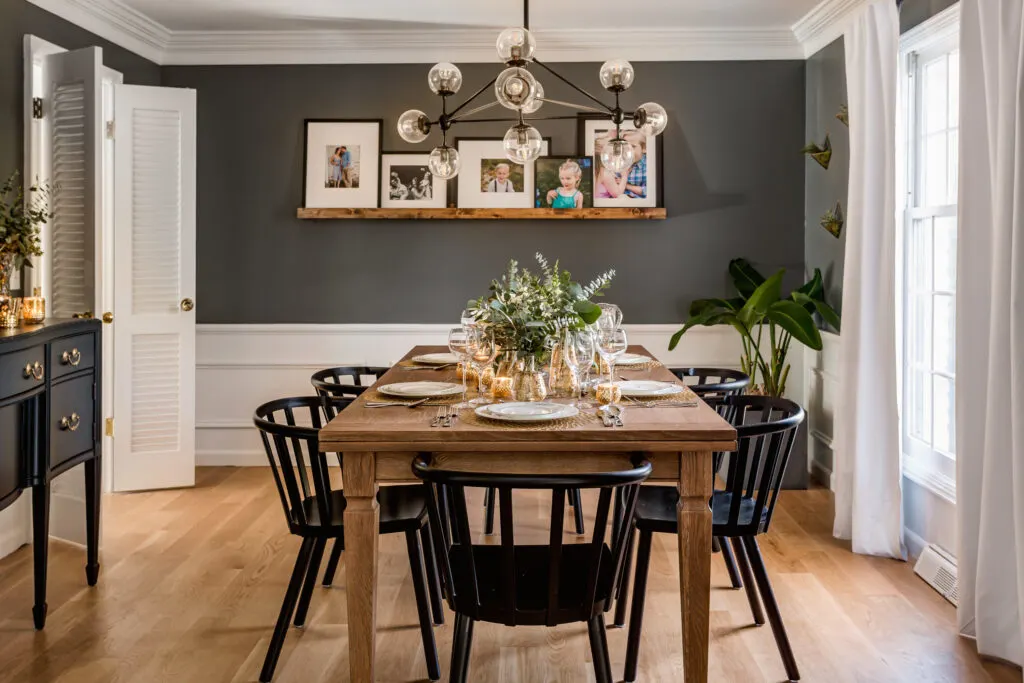
Top Tips to Choose Paint Colors for Your Home
[Affiliate links are included in this blog post, thanks for supporting Building Bluebird!]
1 | What is the function of the room?
It is important to determine how you want to utilize a space before slapping on a fresh coat of paint. Your color choice may change if you decided to use a space as a playroom and not an office.
2 | How do you want the space to make you feel?
Think back to the first time you walked into this room. How did it make you feel and what did you notice first? If your first thought was that it felt dark and closed off, this is a good indication that you should choose a lighter paint color.
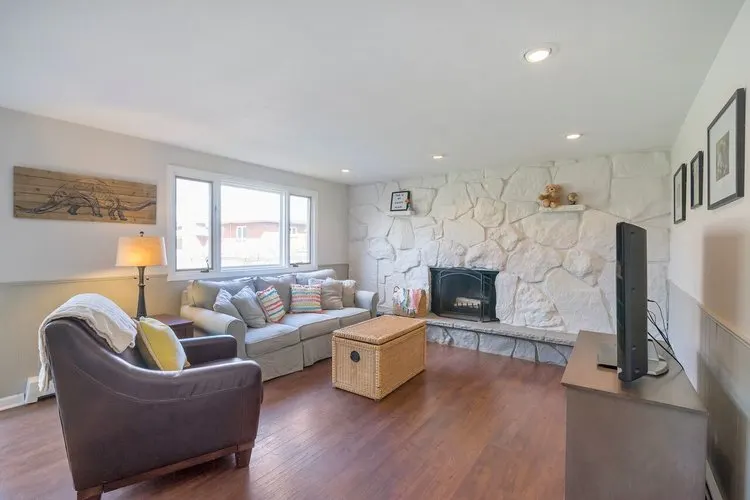
If the room feels bare and uninspiring, this might mean that it needs a little color – not necessarily on the walls, but with your decor. Along with functioning for your family, your home should bring you joy every day.
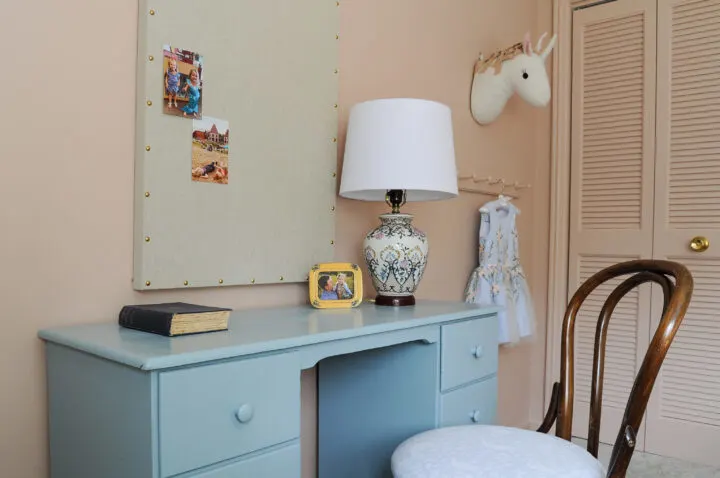
For example, last year I updated our laundry room and I really wanted it to feel clean and airy. I changed the blue walls to a clean, crisp white and painted the brown cabinets an earthy green. I painted a black and white checkered pattern on the floor which also gave it a clean and modern feel.
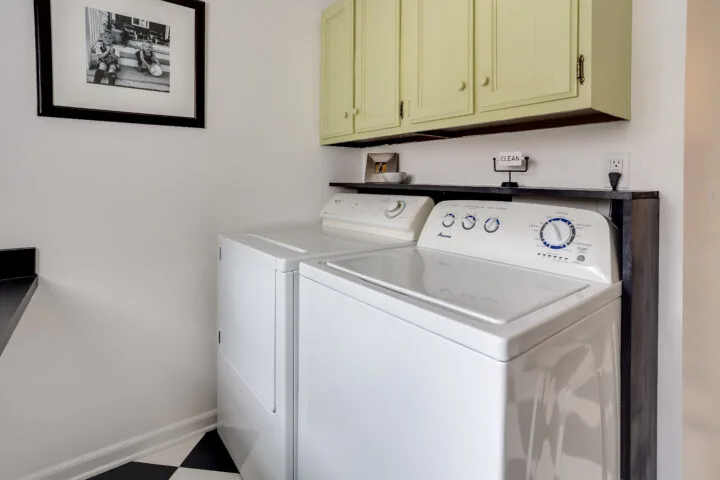
If you are not comfortable choosing bold colors, I suggest keeping the main living spaces a neutral wall color and pepper in color elsewhere. I will dive deeper into this later in the post.
Your wall color acts as the foundation of a room as you add in home decor and furniture. When choosing your paint colors, remember to think about how you want the room to feel. Do you want it moody and cozy?
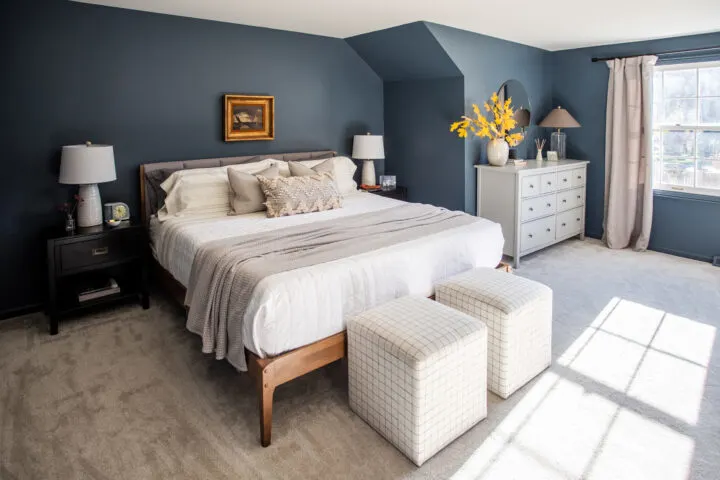
Do you want the space to feel tranquil or give you energy when you walk into the room? These are important questions to ask that will help you create a space that you will love for a long time to come.
3 | Consider Natural Light in a Room
Depending on the natural light within a room, paint color can look wildly different. All paint colors have a light reflective value (LRV) that will range from 0-100.

The closer the number is to 100, the more it will reflect light, and the brighter it will be. The closer the number is to 0, the less the color will reflect and the darker the color will be. If a room has very little natural light and you want to brighten it up, a higher LTV is probably better for the space.
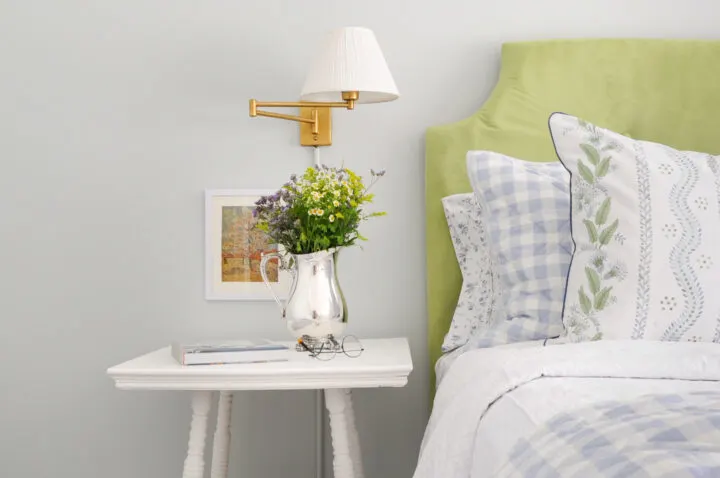
The direction of windows in a room is also important to consider when choosing a paint color. Rooms that get direct sunlight (southern and eastern) will bring out warm undertones of a color.
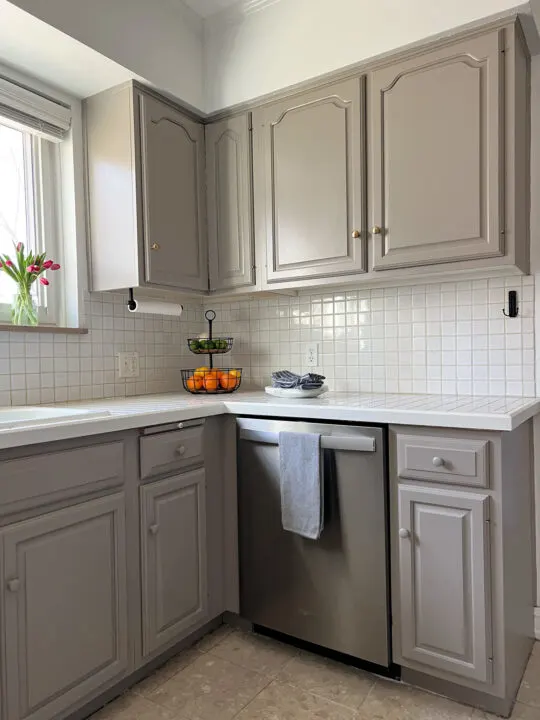
For example, a creamy white with warm undertones may feel too yellow in a room with direct sunlight. A room without direct sunlight (northern and western) will make paint colors feel cooler.
4 | Test the Paint Color in the Room
The best way to know if a color works within a room is to test it on the walls. I like to add a sample to all of the walls and see how they look throughout the day. If a paint color is slightly off, remember that you can lighten or darken that color at your local paint store.
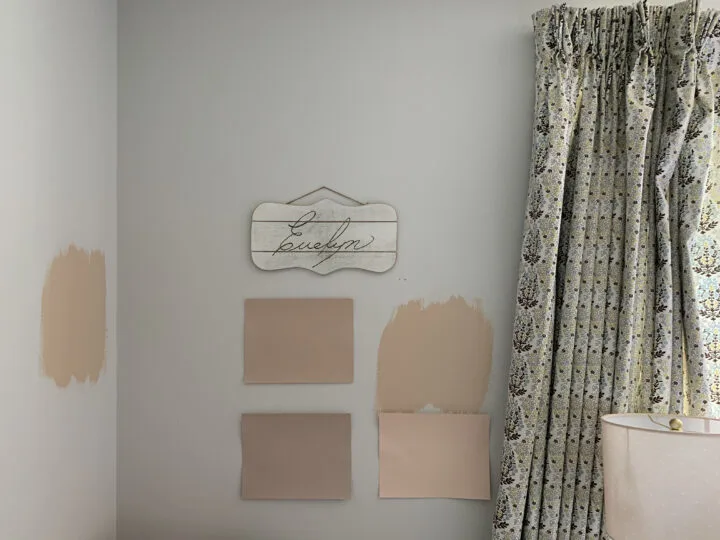
5 | Choose Neutral Paint for Main Living Areas
If you struggle to choose the best paint color for your room and are afraid of making a mistake, go neutral! This is the best way to avoid painting a room twice, which is NOT fun.
While a neutral paint color is good, I am not advocating for an all-gray house. Remember that every color can act as a neutral if you choose the right tone. For neutral color options, look for earth tones.
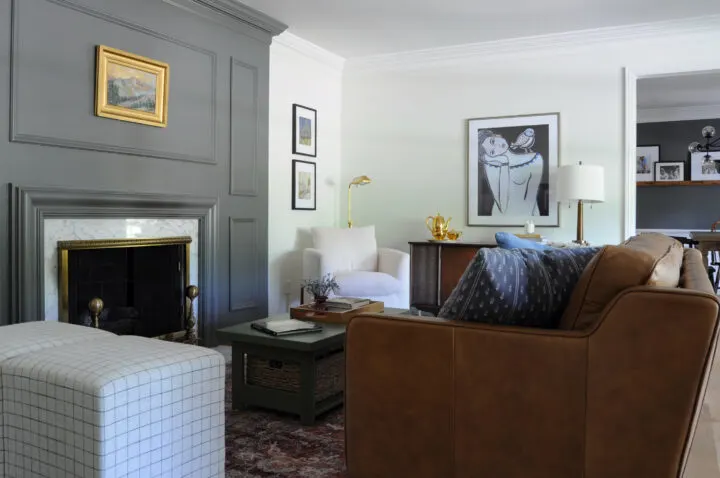
Popular White Paint Colors
My go-to white paint color is usually Alabaster by Sherwin Williams. It is a beautiful, creamy white that feels warm, but can have a bit of a yellow undertone to it. If you are looking for more of a crisp white, Decorators White by Benjamin Moore is a fantastic option.
- Alabaster by Sherwin Williams
- Decorators White by Benjamin Moore
- Eider White by Sherwin Williams
- Polar Bear by Behr
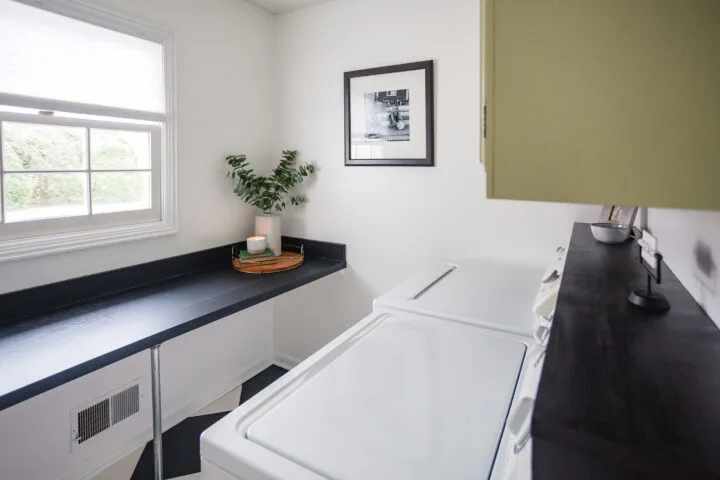
Popular Gray Paint Colors
If your house is full of light and you want a little more of a contrast with gray walls, my absolute favorite greige is Revere Pewter by Benjamin Moore. It adds a little drama without making a room feel too dark.
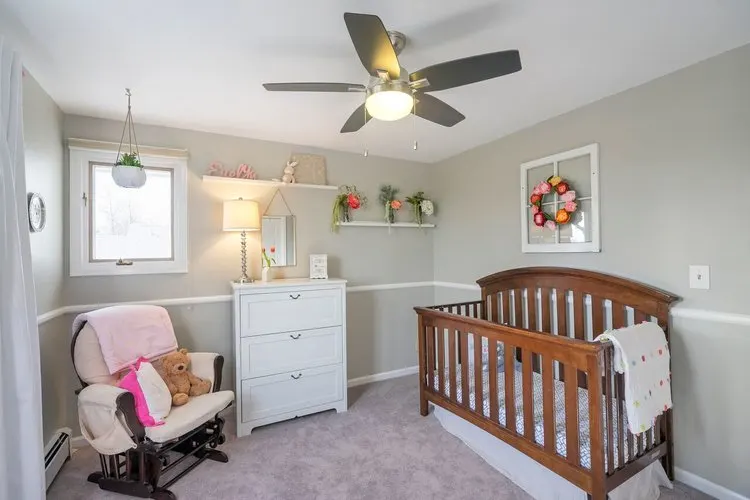
- Revere Pewter by Benjamin Moore
- Light French Gray by Sherwin Williams
- Repose Gray by Sherwin Williams
- Agreeable Gray by Sherwin Williams
- Accessible Beige by Sherwin Williams
- Mindful Gray by Sherwin Williams
- Edgecomb Gray by Benjamin Moore
Colorful Neutral Paint Colors
Any color that looks a bit muddy is usually a good neutral color option. I chose a gray-green paint color for our mudroom that brings so much life into this space while still acting as a neutral.
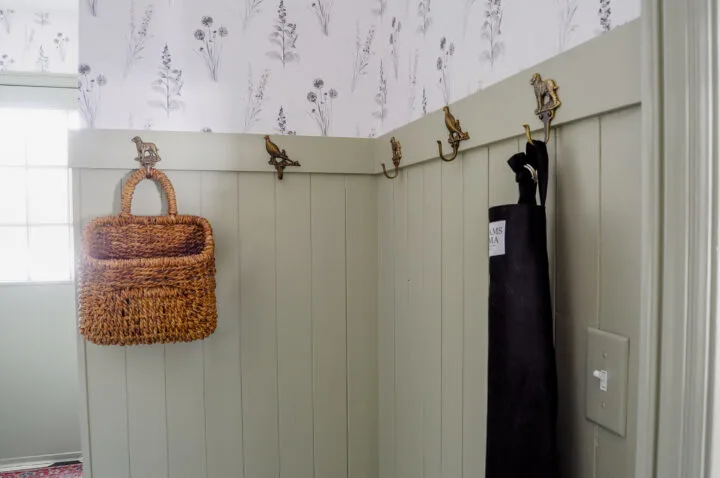
- Outerspace by Sherwin Williams
- Evergreen Fog by Sherwin Williams
- Manchester Tan by Benjamin Moore
- Peppercorn by Sherwin Williams
- Likeable Sand by Sherwin Williams
6 | Experiment with Color in the Bathrooms
A great place to experiment with color is in the bathroom. These rooms tend to be smaller, which means fewer walls to paint or repaint if you decide you hate it!
Here is a dark gray in the original bathroom of a 1920’s colonial-style home.
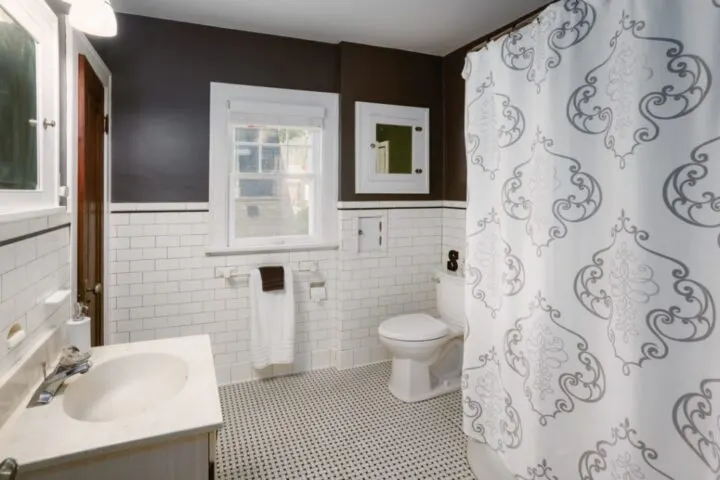
I used Oyster Bay by Sherwin Williams for the bathroom at our flip house and it was the perfect amount of color to give the room character.
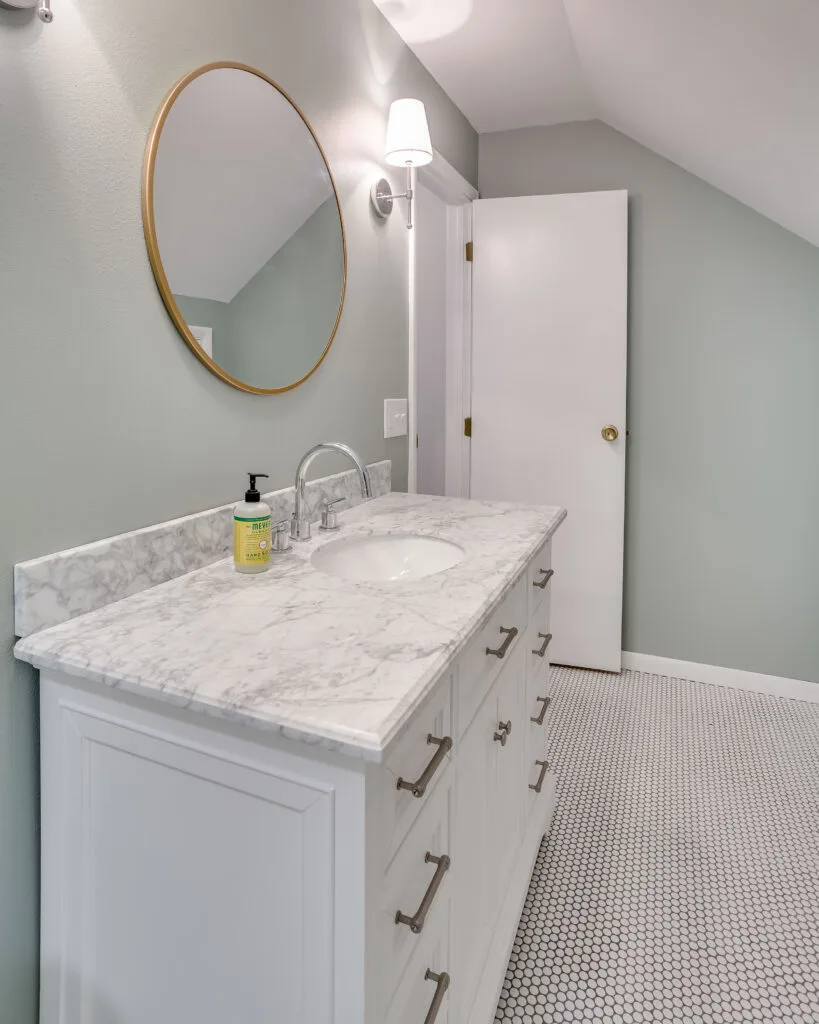
Don’t be afraid of the myth that dark paint colors make a room feel smaller, it is not true! It is a fun element of surprise to go bold in a bathroom or decorate in an unexpected way. I love deep blues like Outerspace by Sherwin Williams or Hale Navy by Benjamin Moore.
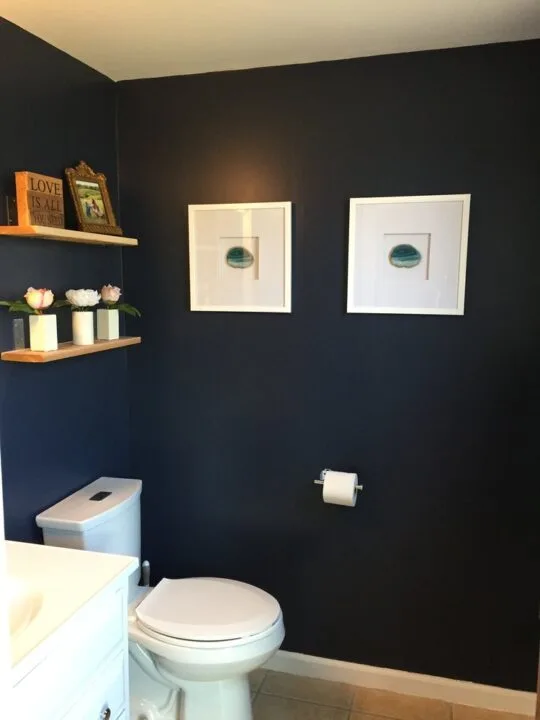
I also love bathrooms for testing out wallpaper. It’s a smaller space so it is less expensive than the main living area and you can just shut the door if you don’t like the finished product! Laundry rooms are a great spot to experiment with wallpaper too.
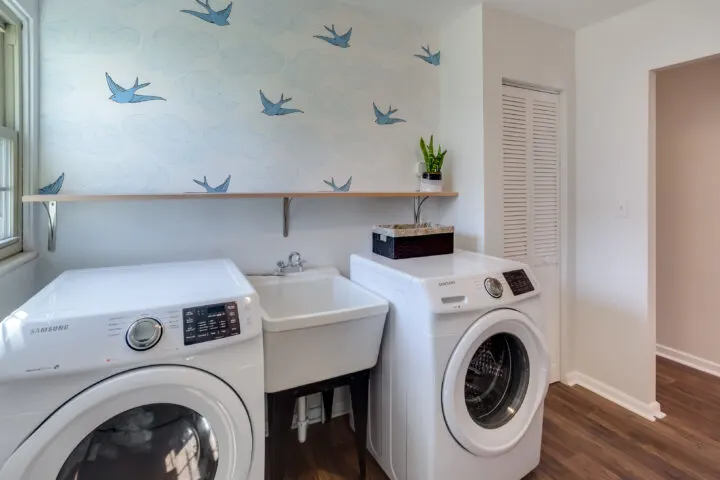
7 | Keep it Simple with the Ceiling & Trim Paint
When we moved into our first two houses, I tried to get fancy with the ceiling and trim colors. Unfortunately, I just got confused and would use the wrong color in the wrong room! Since then I have smartened up and just go with untinted white for the ceiling and trim.
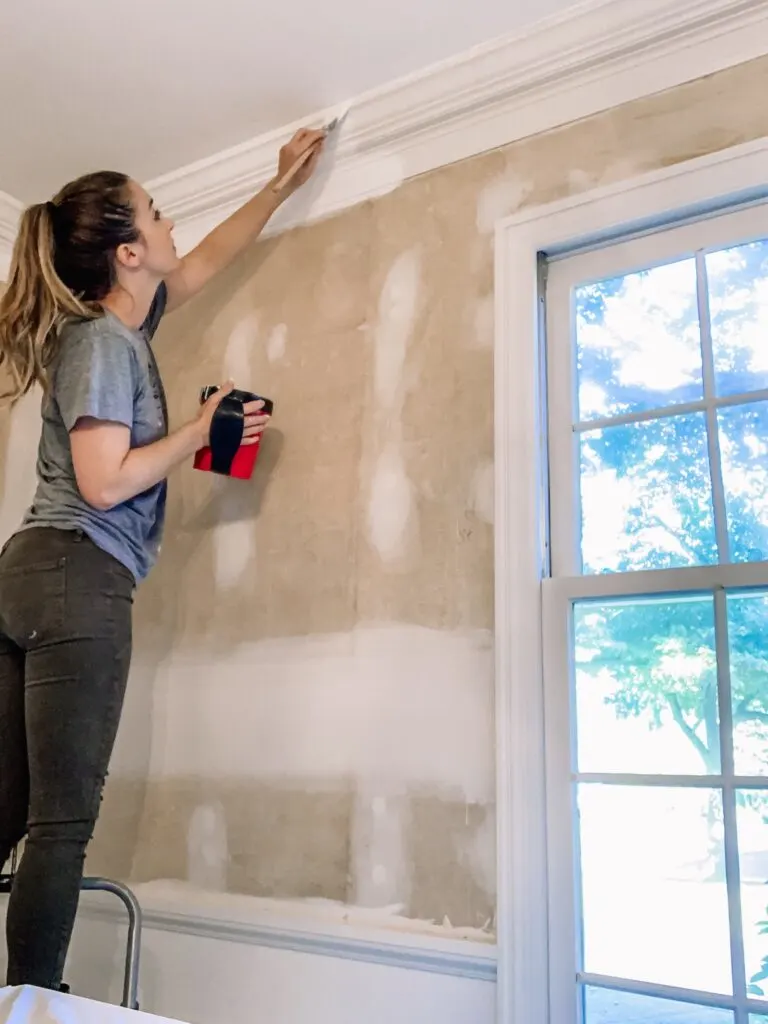
This made my life much less complicated and saved us money because we could use it in every room. Remember to consider the paint sheen when choosing paint colors because it will make a huge difference.
The most common ceiling sheen is flat and baseboards and trim are satin or semi-gloss.
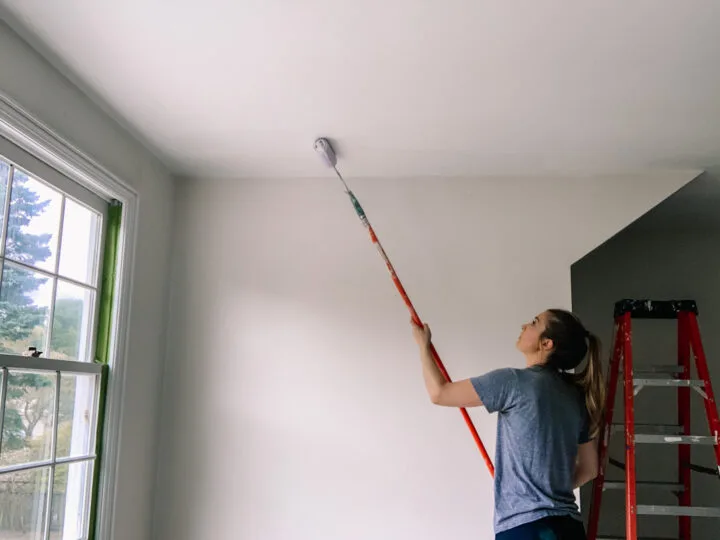
For the walls, the most common sheen is eggshell or satin. I like the eggshell look better, but the satin finish is a little easier to clean, which is preferable with young kids and dogs.
The same goes for trim – I like the less shiny look of the satin sheen, but in our current season of life, I choose semi-gloss because it is easier to wipe down!
*Check out my tips for painting a room with carpeting.
8 | Take Risks with Color in Bedrooms
Your bedroom should be an expression of who you are and more than ever, how you want it to make you feel! You want to create a space that relaxes you at night and gets you energized in the morning.

We have painted our bedrooms with neutral whites/grays and also deep blues that give the feel of a luxury hotel. Hotel rooms are a great place to find inspiration for bedroom design.
For children’s bedrooms, I think it is really important for them to reflect their personalities. But that doesn’t mean that I let them pick any paint color they want! If a child wants a really bold color, try and find a shade that feels classic that won’t go out of style in one year.
Any color that looks a bit muddy is usually a good neutral color option. My daughter wanted a pink bedroom, so I chose Likeable Sand, a muted pink color.
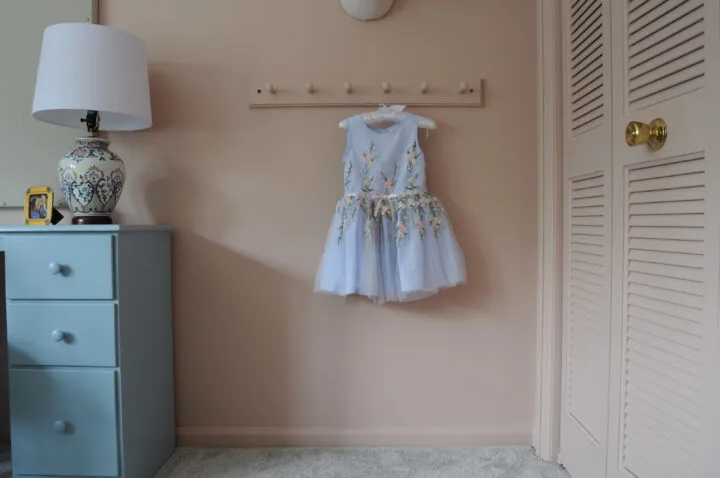
I hope you found these tips helpful and that you have more confidence choosing paint colors for your home! In the end, it is just paint and can always be changed. Take some risks and experiment because that is the best part of decorating your home!
